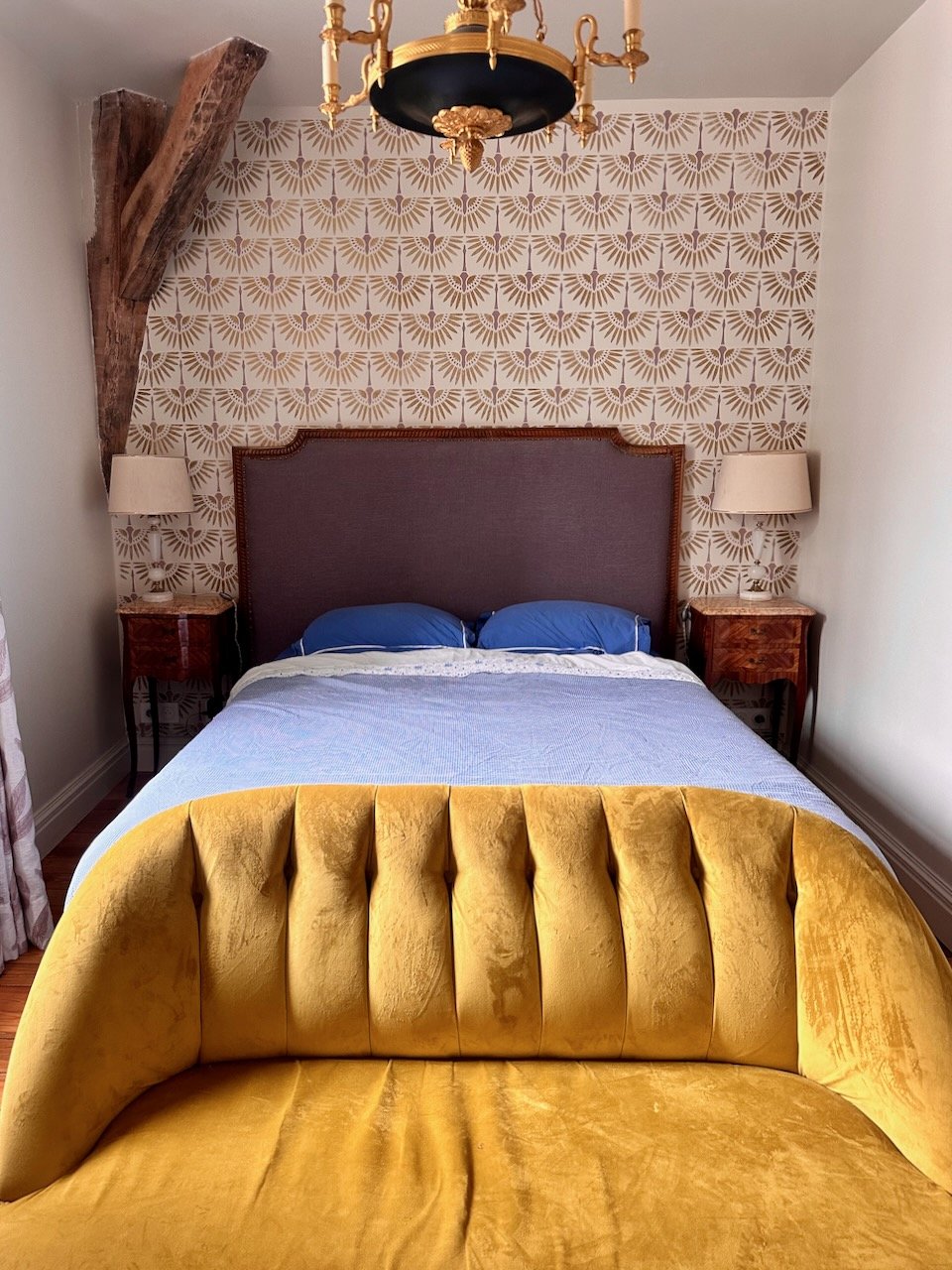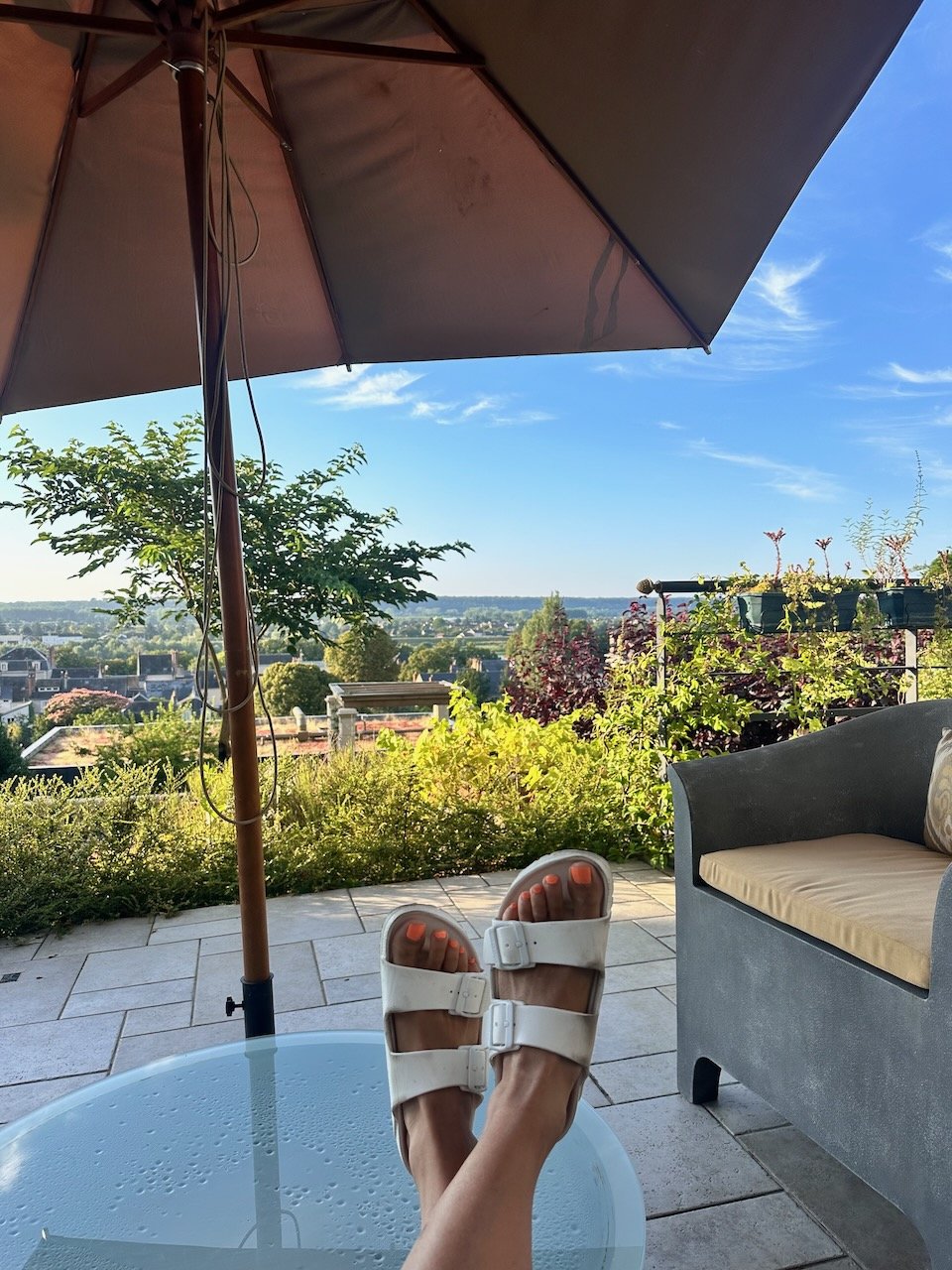I ran away to France
I ran away to France this summer.
That sounds dramatic and while it is a form of truth, I’m learning how to reframe my story in a way that is empowering, which feels especially important given this tumultuous summer. If I were to rewrite that first sentence, I’d write my story like this: I pursued an exciting work opportunity in France despite receiving devastating news that would have significant implications for the rest of my life. Sure, being thousands of miles away from a place associated with tears and reality didn’t hurt but I still forged forward with my goals. The stories you tell yourself have such a powerful impact on how you think on the past.
I spent most of my time in France in Blois, a small town in the Loire Valley, which is famous for its wine, cheese, and châteaux (castles). I was on a one month work exchange at a luxury bed and breakfast working together with the owner to look after the guests and take care of the property. Maison Loire is beautiful and elegant - the image that comes to mind when you imagine “cozy French luxury in the countryside”. The bed and breakfast housed in a renovated 19th century home that is filled with antiques carefully curated by the owners Nicolas and Alexander, whose own love story also started in the Loire Valley.
Most people’s reaction to my plans of going to France was, “What is a work exchange?”. I didn’t find this surprising as I wasn’t aware of this type of opportunity until I started backpacking internationally post university, and those who had never heard of a work exchange before were all American.
A work exchange is exactly what it sounds: you work in exchange for something, and that something can be room, board, money, or some sort of combination of the three. It’s actually quite a popular concept outside of the US (I have my own thoughts on why that’s the case); many recent university graduates will use work exchange as an opportunity to travel the world and explore different cultures in a cost-effective manner.
However it’s not just university grads - I’ve met people of all ages, backgrounds, and educations who participate in work exchange for a variety of reasons, whether that’s to have a budget-friendly vacation, explore a career break or transition, or support themselves this way indefinitely. If you’re interested in trying it out for yourself (you are never too old!) you can check out Worldpackers, Workaway, or WOOFing, the latter of which is focused exclusively on organic farming. These are the most popular work exchange websites and each has its own pros and cons.

Work exchange is such a cool and budget-friendly opportunity to familiarize yourself with the local culture and meet new people, and it’s a pity that not more people in the US are aware of this possibility. My theory is that we Americans as a society tend to focus on a very specific definition of “success” that emphasizes prestige, income, and status, which means we’re not as open to something like a work exchange that might “derail” our careers because it’s not a conventional path.
This is a generalization, I know, but I can’t help but think about how many Americans never take a gap year or think about other types of education outside of a traditional four year secondary institution. Granted there are a lot of caveats around this: not everyone has the privilege or means to even consider these opportunities in the first place - this applies to a very specific demographic of people. The more I travel the more I become educated - I see all the different types lifestyles that are possible. I see all the different ways it means to be “successful”. I see all the lives I can live.
While a significant amount of my time in France was spent being depressed (lol), I did spend some time exploring the Loire Valley and other parts of France. After all, in the wise words of Taylor Swift: I can do it with a broken heart.
Postcards from France:










